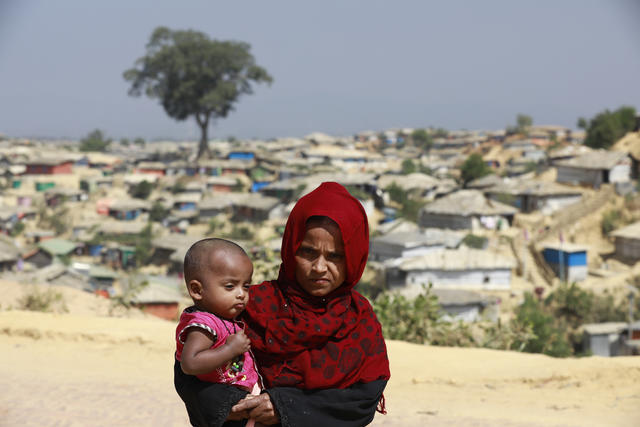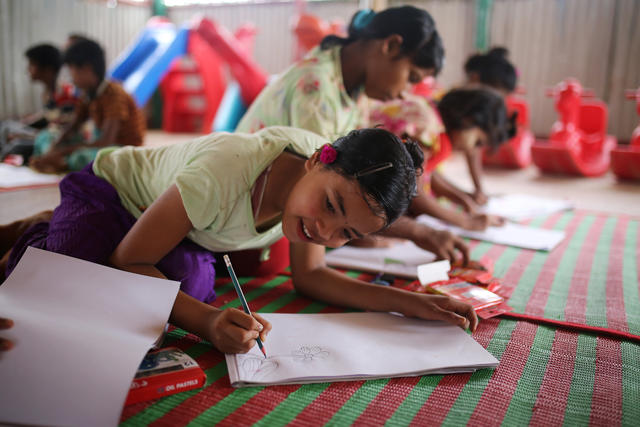Bangladesh: Education of Rohingya Children Remains a Leading Concern

SOS Children’s Villages is addressing the basic educational needs of Rohingya children who have no access to formal schooling in Bangladesh refugee camps.
Five child-care spaces (CCSs) set up by SOS Children’s Villages Bangladesh in February 2018 provide nutritious food and educational and recreational activities for 350 children every day.
Bangladesh has struggled to cope with one of the world’s largest refugee crises since thousands of Rohingya began fleeing neighbouring Myanmar in August 2017. More than half of the 909,000 Rohingya living in refugee settlements are children. The host country has not been able to provide formal schooling for these vulnerable children.

“At this moment the number of refugees is not increasing as in the past,” says Dr. Enamul Haque, Deputy National Director of SOS Children’s Villages Bangladesh. “But the main problem is that these children are growing up and they cannot get proper education. They can only get informal education in their own language.”
The CCSs use Rohingya parents and volunteers to teach children in their native language and they also learn basic English, says Dr. Haque. SOS Children’s Villages is also working with partner organizations that operate temporary learning centres in the refugee settlements in the Cox’s Bazar region.
Monsoon season approaches
Bangladesh is prone to landslides and other disasters caused by cyclones and the June-October monsoon rains are creating additional challenges for the refugees. The coastal region of Cox’s Bazar was spared the impact of Cyclone Fani, which hit eastern India and other parts of Bangladesh in early May 2019.
Dr. Haque says conditions have improved since the 2018 monsoon season. Immunization campaigns have reduced the risk of diphtheria and other preventable diseases. Steps have been taken to improve health services and hygiene for refugees.
“Conditions are much better than last year,” Dr. Haque says. “People are now staying in more settled areas. There is water, sanitation and hygiene available to them. The overall situation is still not ideal, but better than before.”
Supporting hundreds of children daily
In addition to providing recreational and learning activities for children, the SOS Children’s Villages CCSs offer social, emotional, and nutritional support for the 350 children in attendance every day. Children also learn about hygiene and sanitation. They are informed about their rights and child safeguarding topics during their time at the CCSs.

SOS Children’s Villages Bangladesh hopes to expand the emergency programme by offering nutritional, educational and hygienic support for 400 children in host communities, and support to help 600 parents and caregivers to improve their living conditions.
SOS Children’s Villages Canada has an Emergency Mayday Fund to assist in emergency situations. Please consider a making a donation today.
